
Dr. Michael Kilchling is a senior researcher at the Department of Criminology of the MPI for Foreign and International Criminal Law in Freiburg and lecturer at the University of Freiburg where he has also received his doctoral degree (Dr. jur.) with the dissertation “Interests of victims of crime and public prosecution”. His main research interests include penal sanctions and sanctioning systems, juvenile justice, victim/offender mediation and other forms of restorative justice, victimology, organised crime, money laundering and the financing of terrorism, confiscation and asset recovery, and procedural measures of investigation. He has been a member of several international expert groups and committees. He is also a course director of the International Spring Course ‘Crime Prevention through Criminal Law and Security Studies’ (since 2009) and of MPPG’s Intensive Course on Balkan Criminology (since 2014), both held at the Inter University Centre in Dubrovnik (Croatia). His list of publications includes authored, co-authored as well as edited books and articles in German and English, a few of which have been translated into Italian, Turkish and Chinese. He is co-editor of the MPPG’s Newsletter “Balkan Criminology News”.
Dr. Eszter Sárik has worked at the Hungarian National Institute of Criminology since 1999, where she specialised in juvenile delinquency and crime prevention. She has conducted researches in the topic of trajectories in child and juvenile crime, taken part in ISRD2 and executed an examination in homicide cases. Ms. Sárik was appointed as a prosecutor in 2012. In her PhD, “Religion and Crime Prevention”, she put a special focus on the value-structure among youngsters.
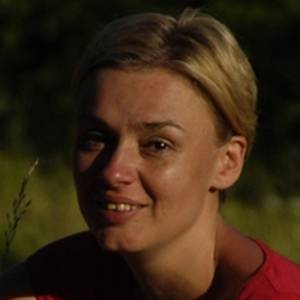

Assist. Prof. Dr. Almir Maljević, LL.M. works as an Assistant Professor of Criminal Law at the Faculty of Criminal Justice, Criminology and Security Studies, at the University of Sarajevo. His research interests include juvenile delinquency, organised collective criminality, and corruption. His work has been published in English and German in European and American crime and criminal justice journals. He participated in numerous national and comparative international research projects focusing on crime and criminal justice issues.
Prof. Dr. Gordana Lažetić is working at the Faculty as full time professor, teaching criminal procedure law, criminology and juvenile justice. She had been Vice-dean between 2008 and 2015. Ms. Lažetić is co-author of several university textbooks, monograph, booklets, manuals for judges, prosecutors and defence lawyers, as well as of compendium of international and domestic instrument regarding mediation and juvenile justice. She is author and co-author of nearly one hundred articles within her field of research in domestic and international journals. She has taken part in almost 30 scientific projects in the country and several implemented abroad. She is a member of Editorial Board at North Macedonian Association for Criminal Law and Criminology, European Society of Criminology, Management Board of SEELS and Management Board of FOSM.


Assoc. Prof. Dr. Goran Livazović is an Associate Professor at the Department for Pedagogy, the Faculty of Humanities and Social Sciences at the University of Josip Juraj Strossmayer in Osijek, Croatia, where he is a lecturer in Social Pedagogy, Leisure Pedagogy, Media Pedagogy, Institutional Pedagogy, Pedagogy of Adolescence, Methodology of Research and Statistical Methods in Education. During his career, he was awarded the Best graduate student by The Lions Club Association in 2003, he graduated as the most successful student and first in class at the Teacher Training Faculty in Osijek (2004), and was awarded the “Best presentation Award” at the SGEM International Conference in Bulgaria (2014). He published more than 30 scientific papers in renowned international and national publications, an author of 6 expert manuals and 1 scientific book. He is a reviewer for a number of renowned international journals (i.e. PLOS ONE, Current Psychology, Journal of Family Psychology). He was a consultant and an author of a number of expert studies and programs in science and education. He was an expert member of a number of EU international and national projects in Croatia.
Assist. Prof. Rok Hacin, Ph.D. is an Assistant Professor of Criminology at the Faculty of Criminal Justice and Security of the University of Maribor, Slovenia. He successfully defended his doctoral dissertation written in English in 2018. His main research interests comprise the legitimacy of the criminal justice system, penology, violent crime, victimology, and crime mapping. He has published papers on prisons, the development of penology in Slovenia, alternative sanctioning, crime mapping, the fear of crime, crime and penal statistics, and other criminal justice and criminological topics. He is currently involved in several projects on safety and security in local communities, cyber-victimisation, penology, etc.


Karlo Ressler, LL.M. obtained his law degree at the University of Zagreb, and during his studies he also spent a year studying at the University of Sheffield, United Kingdom. Furthermore, during his studies, he participated in numerous seminars, conferences and programmes in various fields of law. He obtained his PhD, where he focused on the issue of “Trafficking in human beings in and through the Balkan". Along with trafficking in human beings, his research interests include illegal migrations, violence research and qualitative criminology. He has been a member of MPPG since 2013, as well as an assitant at the University of Zagreb’s Faculty of Law. He is currently a member of the Group of the European People’s Party.
Petra Šprem obtained her Master of Laws degree from the Faculty of Law, University of Zagreb, Croatia in November 2013. After graduation Petra started working as a legal trainee at Attorney of Law office where she worked for 4 years. In May 2018, she passed the bar exam. In 2017, Petra became a member of the Max Planck Partner Group for Balkan Criminology, where she was involved in research (Balkan Homicide Study), event organisation and courses attendance (Balkan Criminology Intensive Courses). Petra participated at Annual Conferences of the ESC 2018,2019. She was the Head of “Counter terrorism workshop for practitioners” at the Ministrry of Justice, Croatia. Petra joined the Soapbox Science event in 2018 and held a public speech on criminology and criminal law sciences. She enrolled in Doctoral studies in Criminal Sciences at the University of Zagreb, Faculty of law in November 2018.
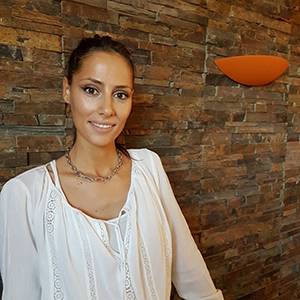
Karlo Bojčić is a research assistant at Department of Pedagogy on Faculty of Humanities and Social Sciences in Osijek. After graduating I Gymnasium Osijek, he studied at the Faculty of Humanities and Social Sciences in Osijek, where he graduated in 2016 and earned Master of Arts in Pedagogy and History. From 2018 he is a PhD Candidate on Postgraduate university study program in Pedagogy at the University of Osijek, on Faculty of Humanities and Social Sciences in Osijek, where he is also a teaching assistant. In March 2019 he started working as a Project Assistant on Violence Research Lab project. In 2019, Karlo participated in Seventh International Mediterranean Social Sciences Congress (MECAS VII) with oral presentation on prevention of physical violence in early childhood and adolescence. His main areas of interests include etiology and phenomenology of violence in early childhood and adolescence, media violence, school violence, adolescent risk behaviors.

Sandra Kobajica, MA works as a Senior Teaching Assistant at the Department of Criminology, University of Sarajevo, Faculty of Criminal Justice, Criminology and Security Studies. She is a PhD candidate in criminology at the University of Sarajevo, and holds a BA and master’s degree in criminology from the Faculty of Criminal Justice, Criminology and Security Studies. Her main field of research is crime against the environment, with a special focus on Bosnia and Herzegovina and the Balkan region. She received several national and international awards and fellowships and is a member of the European Society of Criminology and the Global Initiative against Transnational Organized Crime Network of Experts. She has published scientific and professional papers and participated actively in a number of national and international scientific conferences.

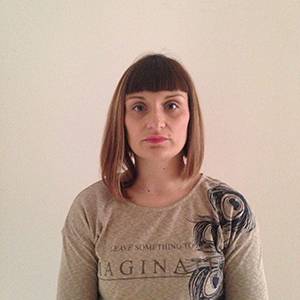
Valentina Šapina is employed at the Ministry of the Interior, Police Academy, Police School “Josip Jovic" as a teacher of professional subjects (criminal law). After graduating from the Zagreb Police College, where she graduated in 2006, she got a job in the Ministry of Internal Affairs as a police officer for juvenile delinquency with special focus on domestic violence, where she worked until 2015 when she was transferred to the position of leader of a group involved in the investigation of blood and sexual offenses, including domestic and juvenile violence. She also performs the duties of a police investigator in such cases. In 2012 at the Faculty of Law in Osijek she completed a postgraduate university study in criminal law and she currently attending a doctoral degree in criminal law at the Faculty of Law in Zagreb with a doctoral dissertation “Criminological Analysis of Homicidal Domestic Violence in the Republic of Croatia". Since 2016 she is a member of the Max Planck Partner Group for Balkan Criminology at the Faculty of Law in Zagreb (researcher at project: Balkan Homicide Study).
Dr. Sanja Ćopić is a Senior Research Associate at the Institute of Criminological and Sociological Research in Belgrade and a researcher and the President of the Executive Board of the Victimology Society of Serbia. She currently serves as the editor in chief of Temida, Serbian leading academic journal on victimisation, human rights and gender. She has participated in numerous action-oriented, comparative and experimental research projects on victims of crime, domestic violence, human trafficking, gender-based discrimination, women in prison, reconciliation, victim support, juvenile delinquency, alternative sanctions, and restorative justice. She has published extensively on these topics, both in Serbia and abroad. Furthermore, she also participated in policy-oriented projects related to different forms of victimisation, victims’ rights and restorative justice, as well as those directed towards the promotion of research and activism in Serbia. The main focus of her recent work has been the use of restorative justice in criminal matters and victim’s position in restorative justice programs, and applying restorative approaches in intercultural settings.
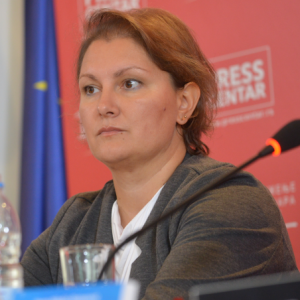

Prof. Dr. Effi Lambropoulou, LL.M. is Professor of Criminology at the Sociology Departmant of Panteion University in Athens, Greece. She received her law degree from the National and Kapodistrian University of Athens’ School of Law, after which she began her own law practice. She subsequently obtained a certificate in History, Sociology, and Psychology of Punishment from Bielefeld University in Germany, Department of Criminal Law. After that, in Freiburg, Germany, she was part of a research project concerning juvenile inmates run by the Criminology Group of the Max Planck Institute for Foreign and International Criminal Law, where she also received her PhD. She has been a visiting Fellow at the University of Cambridge and at the MPI. Her main research, publications and courses cover social control, corrections, policepolicing, sociology of criminal law, corruption, illegal markets, and epistemological issues of criminology. She is a member of various ad hoc reform-committees at the Ministries of Justice and Public Order and reviewer of European and international journals.
Assoc. Prof. Dr. Svetla Margaritova-Vuchkova has over 40 scientific publications in the field of crime prevention, juvenile delinquency, female crime, domestic violence, identity of young offenders, etc. She has participated in the implementation of a number of regional and national criminological research and development programmes for crime prevention. In her monograph “Special measures for juvenile offenders" she has analysed the procedures for the placement in specialized institutions as to their correspondence with the provisions of the European Convention of Human Rights based on the jurisprudence of the European Court for Human Rights in this field. She is the President of the Bulgarian Association of Criminology as well as the Chairman of the Foundation “Bulgarian Lawyers for Human Rights”.
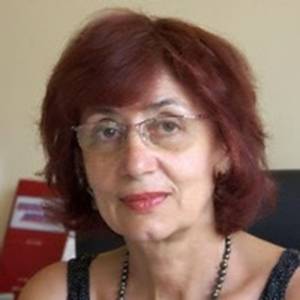
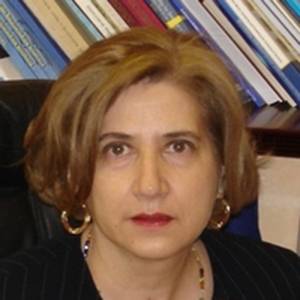
Prof. Dr. Vesna Ratković is professor of Criminal Law with 33 years of progressive experience in justice, human rights, public administration and penitentiary system in Montenegro. Ratković had been the Head of Delegation of Montenegro in GRECO (8 years), Head of Delegation UNCAC IRG (8 years), contact person for OECD in Montenegro, Chair person for RAI, member of the national Commission for implementation of the Strategy and AP for the fight against corruption and organised crime, member of National WG on the Universal Periodic Review (UPR), Human Rights Council, UN, etc. She lectures at Human Resources Management Agency of Montenegro, Centre for Education of Judges and Prosecutors, Police Academy and Regional School for Public Administration. She is author of numerous papers on criminal law, human rights, (anti)corruption and integrity in public administration.
MSc Ljiljana Stevković is a Teaching Assistant at the Faculty of Special Education and Rehabilitation (FASPER), University of Belgrade and a researcher of the Victimology Society of Serbia. She is a PhD candidate in the scientific field of criminology, victimology and penology at the FASPER, with a doctoral dissertation in ‟Domestic violence committed by juveniles”, and holds an MSc degree based on the research of transmission of violent behaviour. She currently serves as the secretary of the Editorial Board of Temida, Serbian leading academic journal on victimisation, human rights and gender. She has participated in numerous national and international research projects on different forms of victimization, child abuse and neglect, domestic violence, women in prison and juvenile delinquency. She has published numerous scientific papers on these topics, both in Serbia and abroad and participated actively in a number of national and international scientific conferences. She is a member of the European Society of Criminology and working groups on victimology and organized crime within it.

